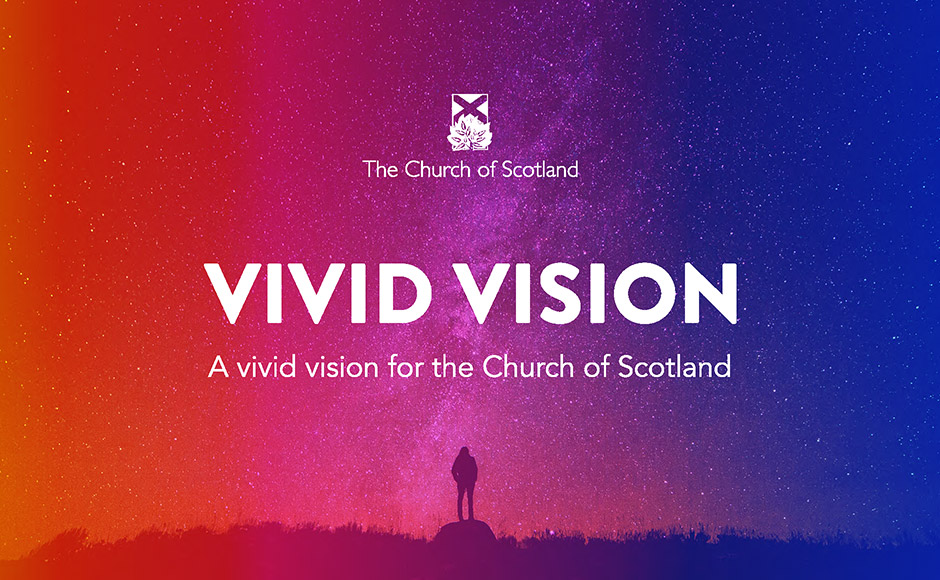Vivid Vision

The future of the Church of Scotland lies in God's hands. We believe this to be true, and so we look to the time ahead with faith.
We also believe we each have a significant part to play in the future of the Church of Scotland and so we give ourselves to listen, learn, plan and act.
The Faith Action Programme Leadership Team (FAPLT) spent time discussing and praying, sharpening and clarifying, to create a picture of what this future might and could look like. It is a picture from their perspective. What does it look like from where you are?
Their Vivid Vision is captured in this film. It is a picture of what might be as we follow the promptings and guidance of the Holy Spirit in witnessing to Christ in our nation and beyond.
It comes as part of a set of resources to help your congregation or Presbytery imagine and prepare for this future. These materials can be accessed by Session Clerks and those in our national ministries. Set time aside to journey together through these materials and create a compelling vision for your congregation and community.
Let us know what you see, so we continue together to shape this vision and the future.
And whatever you do, whether in word or deed, do it all in the name of the Lord Jesus,giving thanks to God the Father through him. (Colossians 3v17)